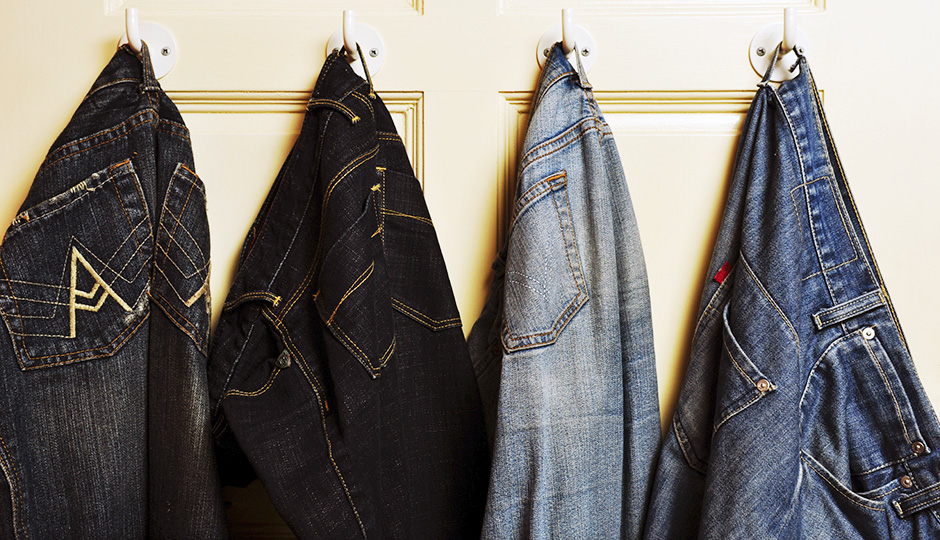This Is How Often You Should Really Be Washing Your Jeans

Leave denim dirty? | iStock/Azahan Rosedy.
There are two camps of people: Those who wash their jeans, and those who don’t. It’s actually extremely divisive, like cilantro or Donald Trump. Non-washers claim that abstaining from the washing machine allows jeans to develop the best, most natural signs of wear and, in the case of raw denim, helps the jeans mold to your body to become a sort of second skin. Those who do wash say, well, ew.
The debate has been going on for some time; even Levi Strauss CEO Chip Bergh weighed in, urging buyers to stop washing their denim. Tommy Hilfiger agrees, and so do the folks at French clothing brand A.P.C., who have even gone so far as to include a ‘no-wash’ rule in the employee handbook. There are de-smell tricks, ones that denim heads swear by, and these range from the basic (spot clean) to the interesting (stick ’em in the freezer) to the weird (run into the ocean in them and then roll around in the sand to break them in!).
I wanted to get to the bottom of it, so I went straight to the source(s): Michael Stampler of Norman Porter, and Brian Nadav, owner of Lapstone & Hammer and co-creator of a denim line that launches this month. They are denim obsessives; if anyone knows what to do, it’s them.
“Washing your pants should be done the same way you wash anything else,” says Stampler. “Avoid heat, wash inside out, and hand-wash for best results.” In fact, he says, washing your jeans can even help them last longer. “When you wash your pants and they shrink a little bit or bounce back a little, you’re really tightening the fabric [and the weave of the denim]. If your weave is tight, then a hole might not get as big as fast.”
Plus, according to Stampler, accumulated dirt and grime from not washing your jeans becomes an abrasive agent, which wears away at the cotton fibers. Nadav agrees: “Clean jeans are a lot more durable and less susceptible to blowouts. Unwashed jeans are very prone to crotch blowouts and other areas such as pockets and knees.” (I think back to my favorite pair of jeans, which blew out in the crotch. Maybe I should have washed them more?)
“I am one to definitely advocate washing, but the key is not often,” says Nadav. “Washing definitely cleans jeans but also washes out the indigo and decreases the potential for extreme fades. It really depends on the fabric of the particular jean.” He regularly washes tech fabrics with stretch elements, but washes his Japanese selvage and other raw denim less frequently: “They are tougher and can take more of a beating. And they really develop some beautiful and unique fades with minimal washes.”
At his Fishtown showroom and jeans-making workshop, Stampler hands out cards with washing instructions, which recommend wearing denim for two to four weeks before washing, so that the jeans can “maintain the form of your body once washed.”
Nadav seconds this: “They key to really breaking in a good pair of raw or selvage is to go as long as possible before the first wash. This really sets the tone for the life of the jean. This time frame can vary to a few weeks to a few months. The longer one goes without washing, the deeper [and] more drastic the fades.”
So there you have it: The washing machine is not the worst enemy of your denim. Just don’t overdo it, wash inside-out in cold water, hand-wash when possible, and hang to dry. Your jeans will last longer, fade more naturally and fit better.
Now, about cilantro …
